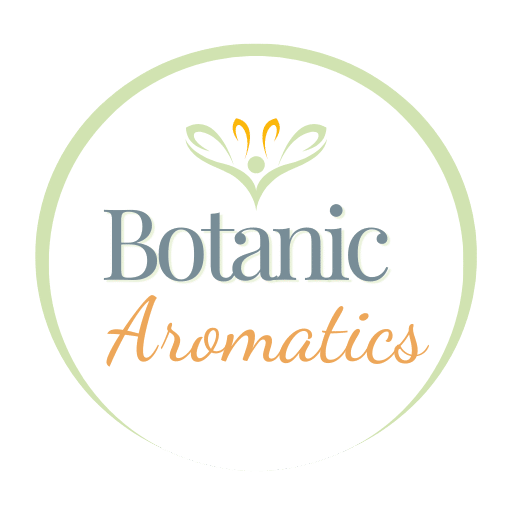Imagine for a moment you’re at a grand ball, and the essential oils are the life of the party, dazzling everyone with their scintillating scents and therapeutic vibes. Now, enter the unsung heroes of this aromatic soirée: the carrier oils. They’re like Essential Oil’s best wingpersons, ensuring their flashy friends don’t get too overwhelming or land anyone in a spot of bother with their potent personalities.
Think of carrier oils as the ultimate chaperones in the world of aromatherapy. They’re the level-headed friends who make sure the essential oils don’t get too carried away, diluting their enthusiasm just enough so everyone can enjoy the party without any drama. These oils come from the seeds, kernels, or nuts of their plants, and while they might not have the same headline-grabbing scents as their essential counterparts, they pack a punch with their own set of superpowers for your skin.
So, as we embark on this journey through the land of carrier oils, remember: without these dependable, nurturing, and often overlooked oils, our beloved essential oils would be like partygoers dancing on tables – fun for a minute, but bound to end in tears.
Let’s give it up for the carrier oils, the unsung heroes keeping the party classy, skin happy, and essential oils in check!
Some Considerations
Although each carrier oil in the list below is generally versatile and safe to use with a wide range of essential oils, the choice of carrier oil usually depends more on the desired therapeutic effect, skin type, and personal preference rather than specific incompatibilities with essential oils. However, there are a few considerations to remember to ensure the best pairing and avoid potential issues.
Comedogenic Ratings – Some carrier oils have higher comedogenic ratings, making them more likely to clog pores. For instance, while incredibly moisturizing, coconut oil has a high comedogenic rating and might not be suitable for use on the face with essential oils for individuals with acne-prone skin. Non-comedogenic oils like jojoba or argan oil would be preferable in such cases.
Allergy or Sensitivity – It’s essential to consider any allergies or sensitivities to carrier oils themselves. Individuals with nut allergies, for example, should avoid almond oil and may need to be cautious with other nut-based oils, opting instead for seed-based carriers like grapeseed or sunflower oil.
Oil Shelf Life and Stability – Some carrier oils do not have a long shelf life and can go rancid. Rancidity affects the quality and therapeutic benefits of the essential oil blend. Although not listed, flaxseed oil, while rich in omega-3 fatty acids, for example, oxidizes quickly and may not be the best choice for long-term use with essential oils intended for prolonged storage. More stable oils like jojoba or fractionated coconut oil might be better choices for blends you wish to keep for longer periods.
Skin Absorption Rate – The skin’s absorption rate can influence its effectiveness for certain applications. Heavier oils like avocado or olive oil are slower to absorb and may be better suited for body applications or deeply moisturizing treatments rather than quick-absorbing facial serums, where lighter oils like rosehip or grapeseed are preferred.
Aromatic Influence – While not a direct contraindication, the natural scent of some carrier oils can influence the overall aroma of an essential oil blend. For blends where the fragrance is crucial (e.g., perfumes or aromatherapy applications), choosing a carrier oil with a neutral scent, such as fractionated coconut oil or jojoba oil, can ensure the essential oils’ aromas remain unaltered.
In summary, while there aren’t strict rules about avoiding specific carrier oils with particular essential oils, understanding the properties of carrier oils and considering the intended use, skin type, and personal health factors can guide you in making the best choices for your essential oil applications.
Now, Meet Your Wingpersons!
Jojoba Oil
Benefits: Jojoba oil’s unique molecular structure allows it to penetrate the skin deeply, providing moisture and nourishment without leaving an oily residue. Its antibacterial properties help control bacterial growth in the hair follicles, making it beneficial for acne-prone skin. Additionally, jojoba oil’s rich antioxidant content aids in skin repair and damage control.
Application: Ideal for daily facial moisturizing, jojoba oil can be applied directly to the skin or mixed with essential oils for added benefits. Its gentle nature makes it suitable for sensitive skin areas, including around the eyes, where it can help reduce the appearance of fine lines and wrinkles.
Some Pairings to Consider
- Lavender – for calming and soothing the skin.
- Tea Tree – for acne-prone and oily skin.
- Geranium – for balancing skin’s moisture.
- Frankincense – for anti-aging and rejuvenating skin.
- Peppermint – for cooling and refreshing tired feet.
Coconut Oil (Fractionated)
Benefits: Fractionated coconut oil is a saturated oil, meaning it has a high stability and resistance to oxidation making it an superior carrier oil for essential oil blends that require a long shelf life. Its light texture allows for easy absorption into the skin, providing hydration and nourishment without clogging pores.
Application: Perfect for creating soothing body lotions, fractionated coconut oil can be blended with calming essential oils like Lavender and Chamomile for a relaxing after-bath experience. It’s also great for making natural deodorants when mixed with antibacterial essential oils like Tea Tree.
Some Pairings to Consider
- Lemon – for detoxifying and energizing body massages.
- Eucalyptus – for respiratory support and clear breathing.
- Rosemary – for hair growth and scalp health.
- Grapefruit – for cellulite reduction and skin toning.
- Lavender – for relaxing and stress-relieving body oils.
Sweet Almond Oil
Benefits: Sweet almond oil is particularly rich in vitamin E, a potent antioxidant that helps protect the skin from oxidative stress and UV radiation damage. Its fatty acid content promotes the retention of moisture, improving skin barrier function and offering relief to dry and irritated skin.
Application: Due to its mild and hypoallergenic nature, sweet almond oil is an excellent choice for baby massages and sensitive skin care products. Mixing it with Roman Chamomile or Lavender can create a gentle, soothing blend for improving sleep quality and calming irritations.
Some Pairings to Consider
- Chamomile – for soothing sensitive or irritated skin.
- Ylang-Ylang – for a luxurious, romantic massage oil.
- Clary Sage – for hormonal balance and PMS relief.
- Sandalwood – for dry skin and grounding aromatherapy.
- Helichrysum – for scar and wound healing.
Olive Oil
Benefits: Olive oil contains squalene, a natural organic compound that mimics the skin’s natural sebum, providing superior hydration and antioxidant protection. It also possesses oleuropein, a compound with potent anti-aging properties, making it beneficial for reducing the appearance of wrinkles and improving skin health.
Application: Olive oil is particularly effective in hair care, providing deep conditioning and improving scalp health. When mixed with Rosemary essential oil, it can stimulate hair growth and reduce dandruff, making it a versatile component of natural hair treatments.
Some Pairings to Consider
- Myrrh – for cracked skin and eczema relief.
- Lemon – for brightening skin and nail care.
- Oregano – for its antimicrobial properties in foot care.
- Cypress – for varicose vein treatment blends.
- Patchouli – for skin cell regeneration and anti-aging.
Argan Oil
Benefits: Argan oil is packed with omega fatty acids, vitamin E, and linoleic acids, which help boost cell production while promoting healthy skin and hair. It’s especially beneficial for fading scars and preventing stretch marks due to its skin-healing properties.
Application: Argan oil is a fantastic nail and cuticle treatment, promoting strength and health. Blended with Lemon essential oil, it can brighten nails and soften cuticles, making it an integral part of a natural manicure regimen.
Some Pairings to Consider
- Rose – for hydrating and improving skin’s appearance.
- Lavender – for a gentle face oil for everyday use.
- Jasmine – for enhancing skin elasticity and scent.
- Neroli – for reducing signs of aging and scars.
- Tea Tree – for a scalp treatment to reduce dandruff.
Grapeseed Oil
Benefits: Grapeseed oil is known for its anti-inflammatory, antimicrobial, and antioxidative properties. The high content of linoleic acid found in grapeseed oil makes it beneficial for addressing skin conditions like eczema, acne, and dermatitis.
Application: Grapeseed oil serves as an excellent base for oily skin formulations. Combining it with Geranium essential oil can help regulate oil production and tighten skin, providing a natural solution for acne-prone skin care routines.
Some Pairings to Consider
- Bergamot – for uplifting and skin-clearing properties.
- Lavender – for a light, soothing after-sun body oil.
- Juniper Berry – for detoxifying and circulation-enhancing massages.
- Rosemary – for muscle pain relief and mental clarity.
- Peppermint – for cooling and refreshing foot care.
Avocado Oil
Benefits: Avocado oil is highly nourishing. It is essential for skin healing and moisturization, containg a powerhouse of vitamins, including vitamins A, D, and E,. Its rich oleic acid content promotes collagen production, aiding in skin regeneration and anti-aging.
Application: Perfect for dry, cracked skin and eczema, avocado oil can be used in hand creams and body butters. Blending it with Helichrysum essential oil enhances its skin-repairing effects, offering a powerful remedy for damaged skin.
Some Pairings to Consider
- Chamomile – for calming itchy or damaged skin.
- Carrot Seed – for sun protection and skin repair.
- Frankincense – for enhancing skin cell regeneration.
- Lavender – for moisturizing and soothing dry skin.
- Tangerine – for stretch mark prevention and care.
Rosehip Oil
Benefits: Rosehip oil is renowned for its high concentrations of vitamin C, a vital molecule for skin health. This vitamin helps in reducing hyperpigmentation and protecting the skin from environmental damage. The oil also contains essential fatty acids, which are crucial for regenerating skin cells and repairing damaged skin tissues.
Application: Ideal for facial serums targeting age spots, scars, and fine lines, rosehip oil combined with Frankincense essential oil can significantly improve skin tone, elasticity, and firmness, offering a rejuvenating skincare solution.
Some Pairings to Consider
- Frankincense – for reducing wrinkles and age spots.
- Lavender – for healing scars and soothing skin.
- Rose – for enhancing skin tone and moisture.
- Geranium – for balancing oil production and enhancing glow.
- Carrot Seed – for facial serums targeting skin rejuvenation.
Hemp Seed Oil
Benefits: Like JoJoba, hemp seed oil is great for most skin types. Like Jojoba, it moisturizes without clogging pores. It helps balance oily skin, hydrating while also regulating the skin’s oil production. Its calming effects on the skin can also reduce issues caused by acne.
Application: Due to its soothing properties, hemp seed oil is excellent for calming inflammation and conditions like psoriasis and eczema. Mixing it with calming essential oils such as Lavender can create a potent blend for relieving skin discomfort and promoting healing.
Some Pairings to Consider
- Tea Tree – for acne treatment and skin clearing.
- Lavender – for calming inflamed skin and reducing redness.
- Eucalyptus – for soothing sore muscles and joint pain.
- Cedarwood – for scalp treatments to combat hair loss.
- Patchouli – for addressing skin conditions like eczema and psoriasis.
Black Seed Oil
Benefits: Black seed oil is known for its therapeutic properties, including anti-inflammatory, antibacterial, and antifungal actions making it highly effective in combating acne and skin infections. It also promotes general skin health by soothing inflammation and irritation.
Application: Black seed oil can be used in spot treatments for acne or blended with essential oils like Lemon for its brightening effects or Peppermint for cooling and soothing skin irritations, making it a versatile oil for various skin concerns.
Some Pairings to Consider
- Lemon – for brightening and purifying the skin.
- Peppermint – for soothing irritated skin and cooling effects.
- Lavender – for general skin health and calming properties.
- Thyme – for antibacterial and antifungal applications.
- Rosemary – for improving circulation and skin rejuvenation.
Helpful Books
Several excellent books serve as valuable resources for those looking to deepen their knowledge about carrier oils, their properties, uses, and benefits. Here are some recommendations that cover a wide range of topics related to carrier oils:
“Aromatherapy: A Complete Guide to the Healing Art” by Kathi Keville and Mindy Green- While covering the broader topic of aromatherapy, this book offers valuable insights into how carrier oils enhance the therapeutic use of essential oils. It provides practical advice on blending oils for healing, beauty, and general well-being, including detailed information on carrier oils and their applications.
“Liquid Sunshine: Vegetable Oils for Aromatherapy” by Jan Kusmirek – This book focuses on the use of vegetable oils in aromatherapy, offering insights into the chemical composition, health benefits, and practical uses of various carrier oils. Kusmirek’s work is well-researched and accessible, making it a great addition to the library of anyone interested in the more scientific aspects of carrier oils.
“Power of the Seed: Your Guide to Oils for Health & Beauty” by Susan M. Parker- Parker’s book is an extensive resource on the use of oils in health and beauty, providing in-depth profiles on over 90 oils. It covers the history, chemical properties, and uses of each oil, along with guidance on how to select, store, and apply them effectively. This book is particularly valuable for its focus on the lipid profiles of oils and their effects on skin health.
“Carrier Oils for Aromatherapy and Massage” by Len Price with Ian Smith and Shirley Price – This book provides a comprehensive guide to over 40 carrier oils used in aromatherapy and massage. It includes detailed profiles of each oil, covering their extraction methods, key constituents, therapeutic properties, and specific uses. It’s an essential resource for students and practitioners of aromatherapy, as well as anyone interested in natural skincare.
“The Complete Book of Essential Oils and Aromatherapy” by Valerie Ann Worwood – While not exclusively focused on carrier oils, Worwood’s book is a treasure trove of information on using essential oils safely and effectively, including how they can be best diluted and applied with various carrier oils. It offers over 800 natural, non-toxic, and fragrant recipes to create health, beauty, and safe home and work environments.
Each of these books offers a unique perspective on the role of carrier oils in aromatherapy and natural health, making them invaluable resources for anyone looking to explore the benefits of these versatile oils. Whether you’re a beginner or a seasoned practitioner, these books can provide you with the knowledge and inspiration to incorporate carrier oils into your holistic health practices.
Disclaimer: The information provided in this content is for educational purposes only and is not intended to diagnose, treat, cure, or prevent any illness or health condition. The use of essential oils and natural remedies mentioned herein should not replace professional medical advice or treatment. We strongly recommend consulting with a qualified healthcare practitioner, such as a physician, aromatherapist, or other experts in integrative medicine, before starting any new health regimen, especially if you have pre-existing health conditions, are pregnant, breastfeeding, or considering the use of essential oils for children. Always perform a patch test for allergic reactions before applying essential oils topically, and follow safe usage guidelines. Your health and wellness are important to us, and making informed decisions with professional guidance is paramount.

Leslie has been a dedicated explorer of holistic remedies for over two decades. Her personal journey has evolved into a thriving business, Botanic Aromatics. Currently completing a certification in professional aromatherapy through Essence of Thyme College of Holistic Studies, Leslie brings a wealth of knowledge and passion to the realm of natural wellness. With a BA in psychology, Reiki mastery, ordained minister, and shamanic practitioner, Leslie combines diverse skills and insights to pursue holistic living. Alongside her holistic ventures, Leslie is an avid writer, committed to sharing information and passionately conveying insights and knowledge to inspire others on their wellness journey. In her business, Leslie seamlessly intertwines research and intuition to craft unique products for health and wellness, embodying a commitment to balance and personal well-being.
Content written in collaboration with ChatGPT4, Co-Pilot, Yoast, Grammarly and Canva

